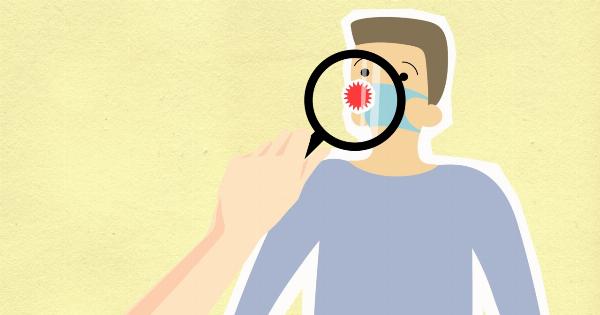Most dog owners are aware that coughing is not a good sign in their furry friend. Often, a dog’s persistent cough can be a sign of an underlying health issue.
It can be challenging to pinpoint the exact cause, but here are some common reasons why dogs develop a cough, and what you can do to help them.
1. Kennel cough
One of the most common causes of coughing in dogs is kennel cough, which is a highly contagious respiratory infection. Dogs usually contract the infection in kennels, boarding facilities, or dog parks.
Symptoms of kennel cough include a persistent dry cough, sneezing, nasal discharge, and a loss of appetite.
Ideally, you should have your dog vaccinated against kennel cough before he/she comes into contact with other dogs. Treatment depends on the severity of the infection; antibiotics, cough suppressants, and rest can help manage symptoms.
2. Heart-related issues
Heart problems can also lead to a cough, particularly in older dogs. A cough caused due to heart issues is often dry and persistent. It may worsen at night, or after exercise.
You should keep a close eye on your dog’s breathing rate and look for other signs like lethargy, loss of appetite, and coughing up foam.
Your vet may recommend a series of tests, including blood tests, an electrocardiogram (ECG), and ultrasound to determine the exact reason behind your dog’s cough.
If your dog is diagnosed with heart disease, medication may help manage the symptoms.
3. Respiratory infections
Dogs are more prone to upper respiratory infections, just like humans. They can develop infections like pneumonia, bronchitis, or even asthma.
Symptoms of respiratory infections in dogs include a wet or dry cough, difficulty breathing, loss of appetite, and wheezing.
Visit your veterinarian if your dog has any of these symptoms. The vet may prescribe some treatment like antibiotic therapy, bronchodilators, or anti-inflammatory drugs.
4. Allergies
Just like humans, dogs can also develop allergies. They may be allergic to certain foods, pollen, dust, and even specific fabrics. Allergies can cause skin irritation, itching, and coughing.
If you notice that your dog is coughing after a walk or playing outside, your dog may be allergic to something in the environment. Environmental allergies can also lead to skin irritation and itchiness.
Your veterinarian may recommend allergy tests to determine the cause of the cough. Treatment for allergies can include changing to a hypoallergenic diet, allergy medications, or immunotherapy.
5. Trauma or foreign object
Dogs are curious animals, and they tend to explore their surroundings by sniffing and chewing on things. If your dog has a cough, it may be due to trauma to the throat or trachea or a foreign object stuck in the airways.
If you suspect something is caught in the airways, contact your veterinarian immediately. In some cases, your vet may need to sedate your dog to remove the object. In severe cases, your dog may require surgery.
6. Cancer
Coughing can also be a symptom of cancer in dogs. Chest tumors, particularly in lung cancer, can cause coughing.
If your dog has a persistent cough along with other symptoms such as lethargy, loss of appetite, or difficulty breathing, your veterinarian may carry out screening tests to detect the presence of cancer. If cancer is detected, treatment options include chemotherapy, radiation therapy, or surgery, depending on the type and extent of cancer.
7. Tracheal collapse
Tracheal collapse is a medical condition that some small dog breeds can be prone to. This occurs when the cartilage that makes up the trachea is weakened, causing it to collapse and narrow the airway. This results in a honking or goose-like cough sound.
Obese dogs and those exposed to second-hand smoke can also develop tracheal collapse.
If your veterinarian suspects that your dog has tracheal collapse, they may recommend medications like cough suppressants, bronchodilators, or steroids.
8. Psychological stress
Psychological stress can also lead to coughing in dogs. If you recently adopted a rescue dog or if your dog is anxious and stressed, it can lead to coughing fits. Separation anxiety is a common cause of stress in dogs.
If you think your dog’s cough is related to stress, you can try to help him/her relax through play and exercise.
9. Aging
As dogs age, their immune systems weaken and they become more susceptible to certain medical conditions.
An occasional, soft cough in older dogs is usually nothing to worry about, but if the cough becomes persistent, you should take your dog to the vet for an evaluation.
Regular check-ups are essential for ageing dogs to detect any underlying health condition early on.
10. Avoid second-hand smoke
Dogs exposed to second-hand smoke have an increased risk of developing respiratory problems like coughing, asthma, and pneumonia. If you’re a smoker, you should consider quitting for your health and your dog’s health.
Avoid exposing your dog to other respiratory irritants like household cleaning products, candles, and air fresheners because they can also cause respiratory problems in dogs.
Conclusion
A persistent cough can be a sign of an underlying health problem. As a responsible dog owner, it’s essential to stay vigilant and watch for any signs of distress in your furry friend.
If your dog is coughing persistently, take him/her to the veterinarian for a check-up. Early diagnosis and treatment can help manage the symptoms and ensure your dog leads a happy and healthy life.





























